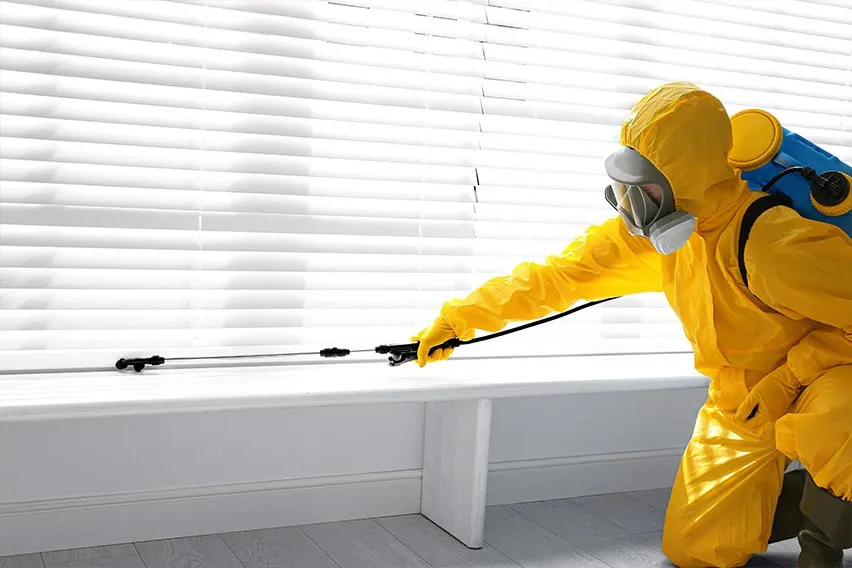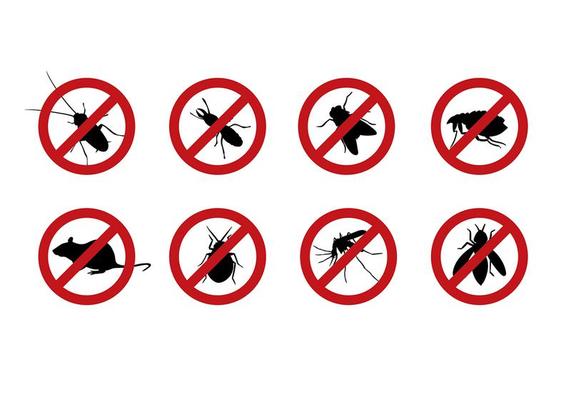Trustworthy Pest Control Homestead Professionals for All Your Pest Issues
Wiki Article
Ultimate Guide to Bug Control: Advantages, kinds, and strategies
Pest control is a critical aspect of maintaining a safe and healthy and balanced setting, whether it be in property, commercial, or agricultural setups. Recognizing the advantages, strategies, and types of bug control methods can significantly affect the effectiveness of parasite monitoring techniques.Relevance of Pest Control
Parasite control plays a critical function in maintaining the health and wellness of both domestic and business atmospheres. By successfully managing and getting rid of organizations, insects and people can prevent the spread of conditions, secure residential or commercial property from damages, and guarantee a tidy and hygienic living or functioning area. Parasites such as bugs, rodents, and termites can position significant health dangers to human beings and animals by infecting food, transmitting illness, and causing allergies. In addition, bugs can create architectural damages to structures and facilities, causing expensive repair services and potentially jeopardizing the security of passengers.Carrying out regular bug control determines not only safeguards the physical health of people but additionally adds to their mental wellness by creating a safe and comfy environment free from the annoyances and disturbances brought on by bugs. Additionally, in industrial setups, insect control is necessary for keeping a favorable reputation, following health and wellness laws, and securing the wellness of employees and customers. Overall, the relevance of parasite control can not be overemphasized in protecting the wellness, security, and overall lifestyle in both business and household areas.
Usual Pest Control Strategies
Given the critical function that pest control plays in securing health and building, it is essential to explore efficient methods for managing and eliminating insects. Usual bug control techniques incorporate a series of approaches tailored to specific pest types. Physical approaches involve making use of traps, internet, or barriers to stop pests from entering or to record them. Organic control employs all-natural predators or pathogens to manage pest populaces, minimizing the need for chemical interventions. Chemical control, such as chemicals, is extensively made use of but calls for cautious application to minimize environmental impact. Additionally, integrated insect administration incorporates different strategies to attain long-lasting parasite suppression while lessening risks to human wellness and the environment. Social techniques, like appropriate waste management and maintaining tidiness, also play a crucial function in parasite avoidance. Ultimately, one of the most effective bug control strategy frequently includes a mix of strategies customized to the certain pest species and the atmosphere in which they stay.
Organic Insect Control Approaches
When considering environmentally-friendly methods to handling pest populaces, natural parasite control techniques use a lasting remedy. One typical organic insect control technique is biological control, which includes introducing natural predators, bloodsuckers, or virus to control pest populations.An additional effective organic insect control method is the usage of organic chemicals acquired from natural resources such as microorganisms, minerals, or plants. These pesticides target particular pests while decreasing damage to valuable insects and the ecosystem. Neem oil, for instance, is a popular organic pesticide that interrupts the development and reproduction of numerous insects without creating damage to other microorganisms.
Social practices like plant turning, friend planting, and preserving correct plant health and wellness also fall under natural insect control approaches. By creating a balanced community and lowering bug vulnerabilities, these techniques assist protect against pest infestations without the demand for harmful chemicals. you can try this out Organic pest control methods not only shield the environment yet additionally promote lasting and long-term bug management remedies.
Sorts Of Parasite Control Solutions
Thinking about the varied methods offered for taking care of parasite populations, a vital facet to discover next is the series of solutions offered under the umbrella of bug control. Pest control solutions can be broadly classified right into 3 primary types: residential insect control, industrial parasite control, and incorporated bug management (IPM)Residential bug control solutions focus on managing and removing pests frequently found in homes, such as ants, termites, rats, and cockroaches. These solutions typically involve the application of risk-free yet efficient treatments to safeguard the health and wellness of citizens.

Integrated Bug Monitoring (IPM) takes an alternative approach to pest control by incorporating biological, social, physical, and chemical methods to manage bug populaces successfully while reducing threats to human health and the atmosphere. IPM focuses on long-term prevention and sustainable parasite management techniques.
Integrated Insect Monitoring Approach
An integrative method to pest management, called Integrated Parasite Management (IPM), combines different techniques to successfully regulate pest populaces while reducing threats to human health and wellness and the atmosphere. Pest Control Homestead. IPM focuses on stopping parasites through a mix of biological, social, physical, and chemical control approaches. By making use of an all natural approach, IPM aims to attend to the origin of parasite infestations instead of just treating the signsOne secret aspect of click here to find out more IPM is using biological controls, such as introducing all-natural killers or pathogens to manage pest populations. This method minimizes the dependence on chemical pesticides, therefore reducing the general ecological effect. Cultural controls involve customizing the insect's habitat to make it less hospitable, while physical controls include the use of catches or obstacles to leave out or record bugs.
IPM likewise emphasizes tracking and regular evaluation to assess parasite levels accurately and establish one of the most proper control approaches. By incorporating these diverse strategies, IPM supplies a lasting and efficient approach to pest monitoring that promotes lasting services while safeguarding human wellness and the community.

Verdict
By making use of different strategies such as organic approaches and integrated parasite administration, people can efficiently handle and avoid bug infestations. On the whole, executing correct insect control measures can assist shield property, crops, and human health and wellness from the damaging results of insects.Recognizing the benefits, strategies, and types of bug control methods can dramatically impact click to find out more the effectiveness of pest monitoring strategies. Typical bug control strategies incorporate a range of methods customized to details insect kinds. One usual natural insect control technique is biological control, which entails presenting all-natural killers, parasites, or microorganisms to manage parasite populations.An integrative method to pest management, understood as Integrated Bug Monitoring (IPM), incorporates different strategies to successfully manage pest populaces while lessening risks to human wellness and the setting. Social controls include modifying the insect's habitat to make it less hospitable, while physical controls include the usage of catches or barriers to exclude or catch bugs.
Report this wiki page